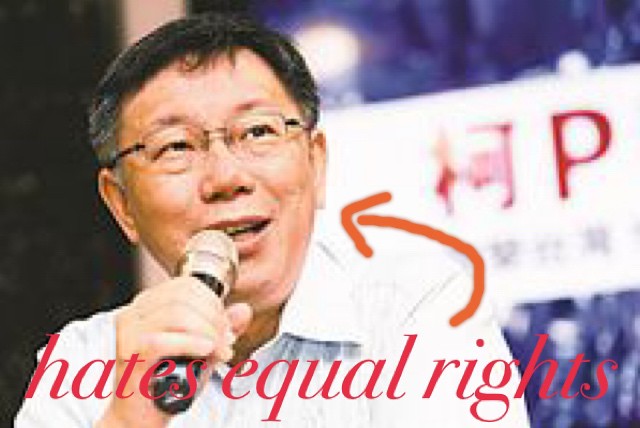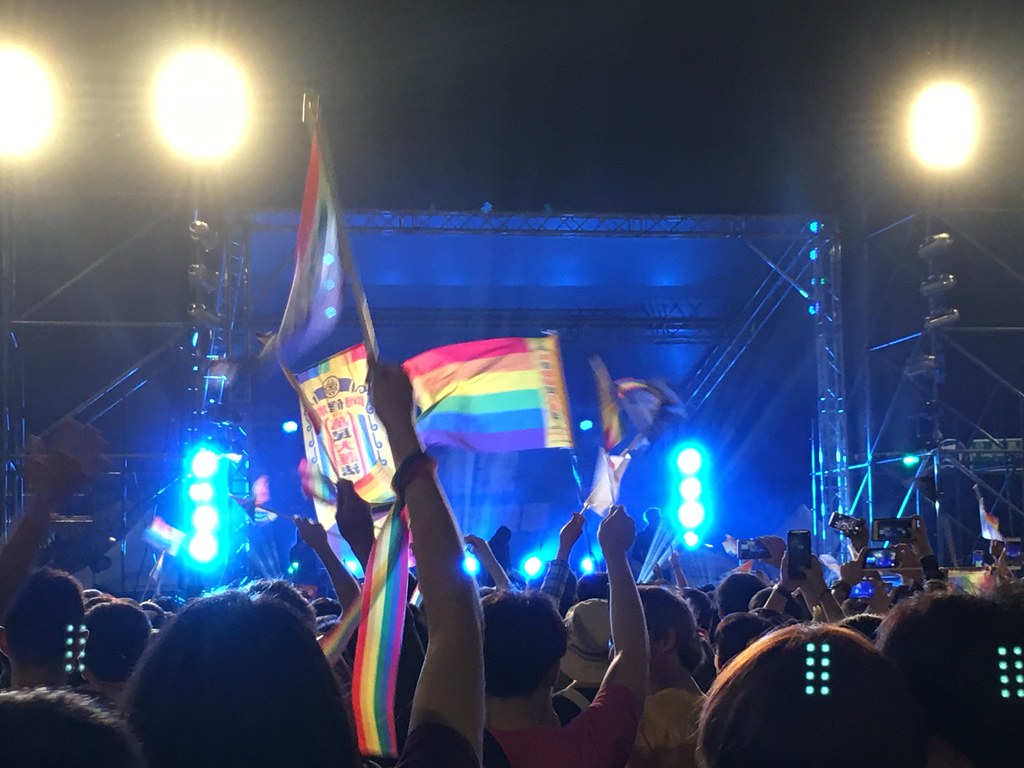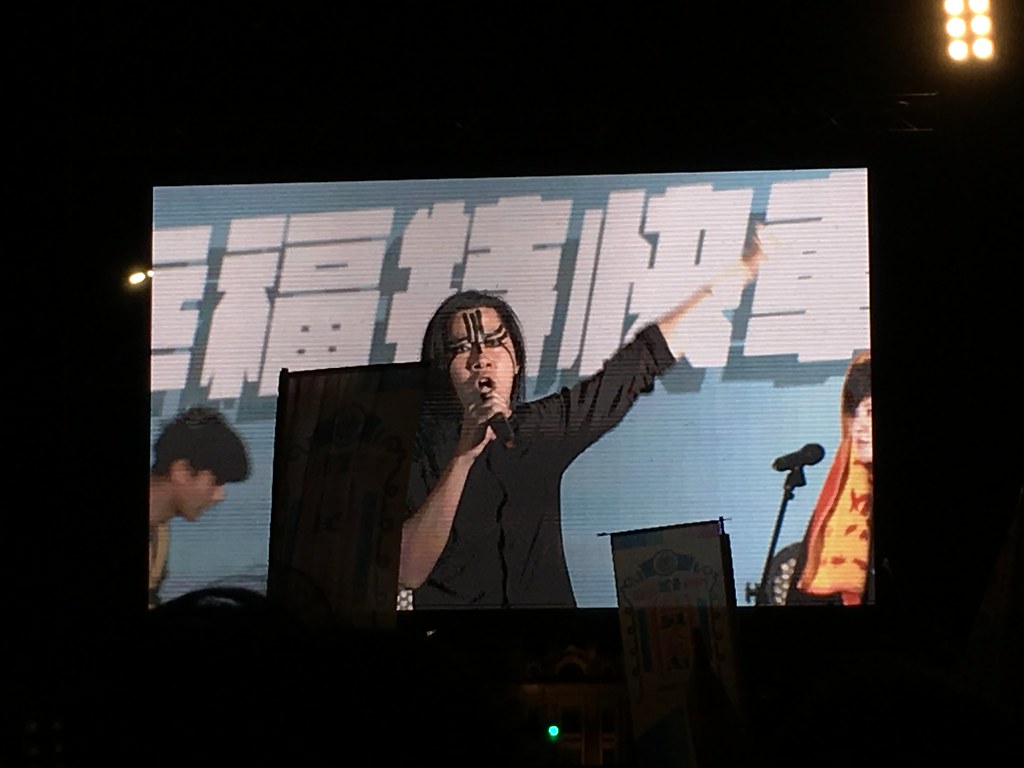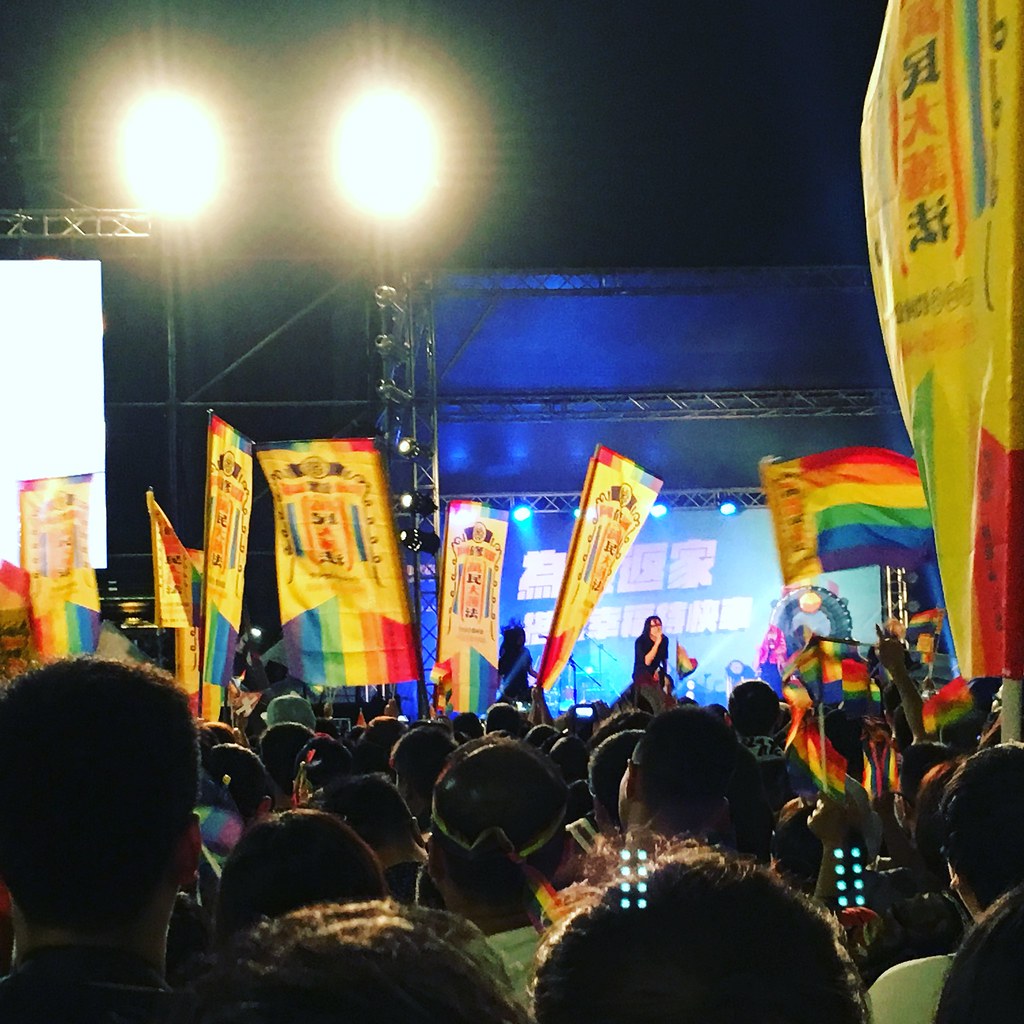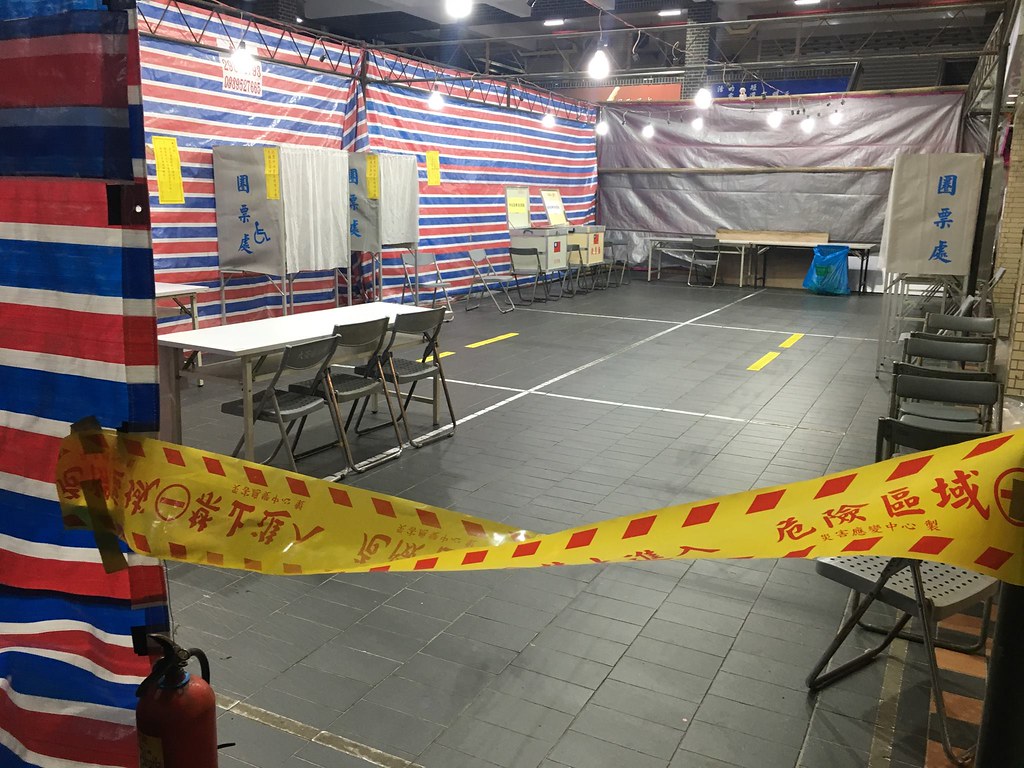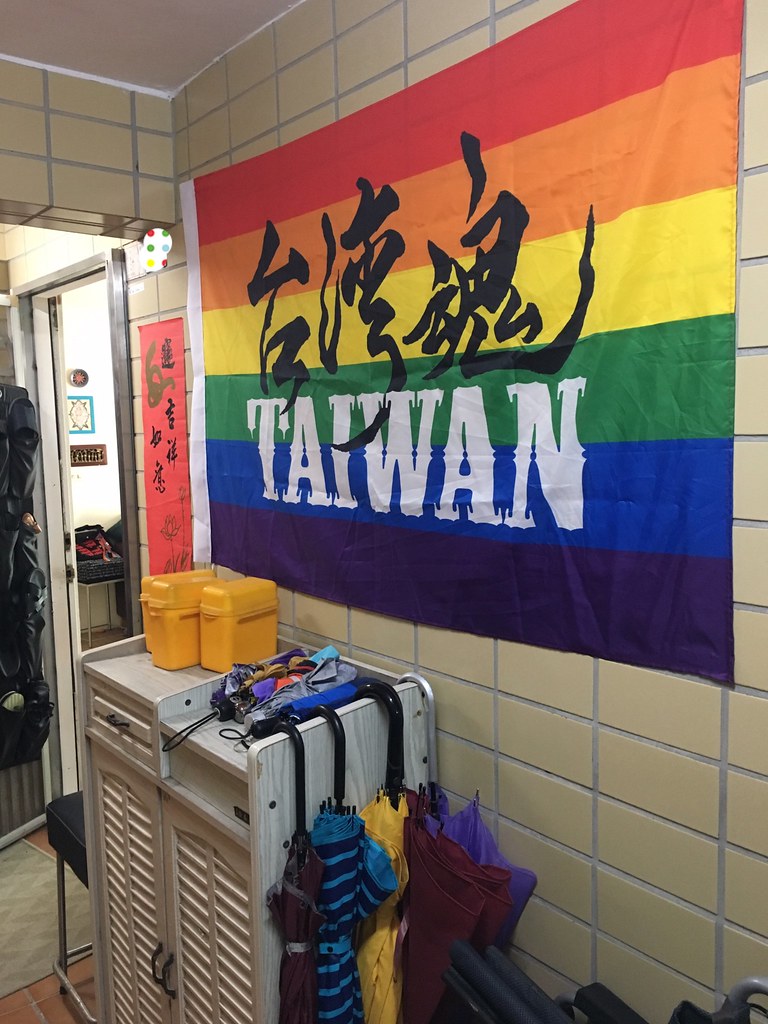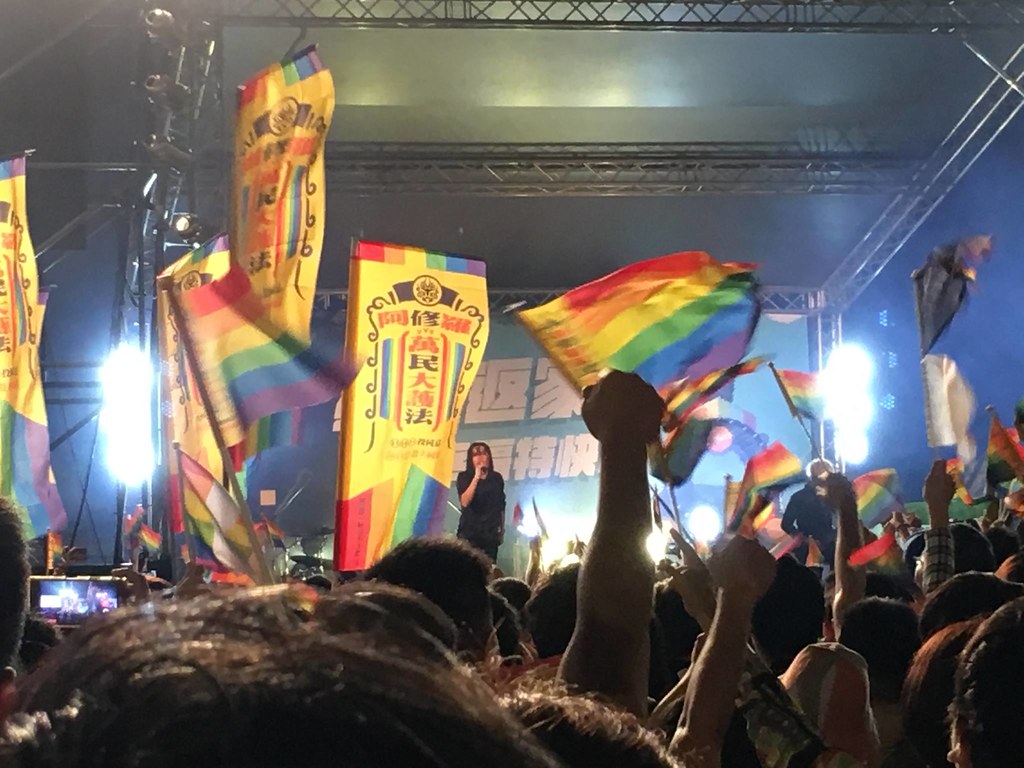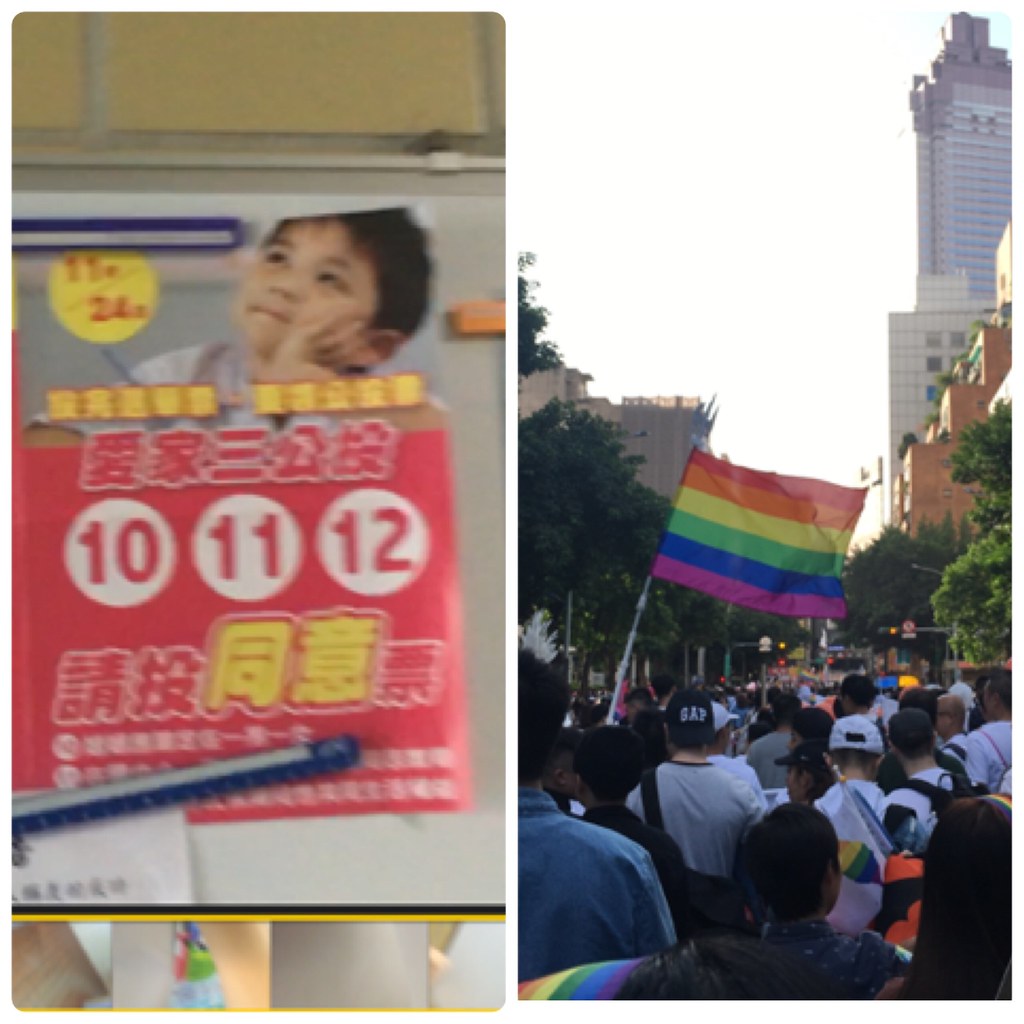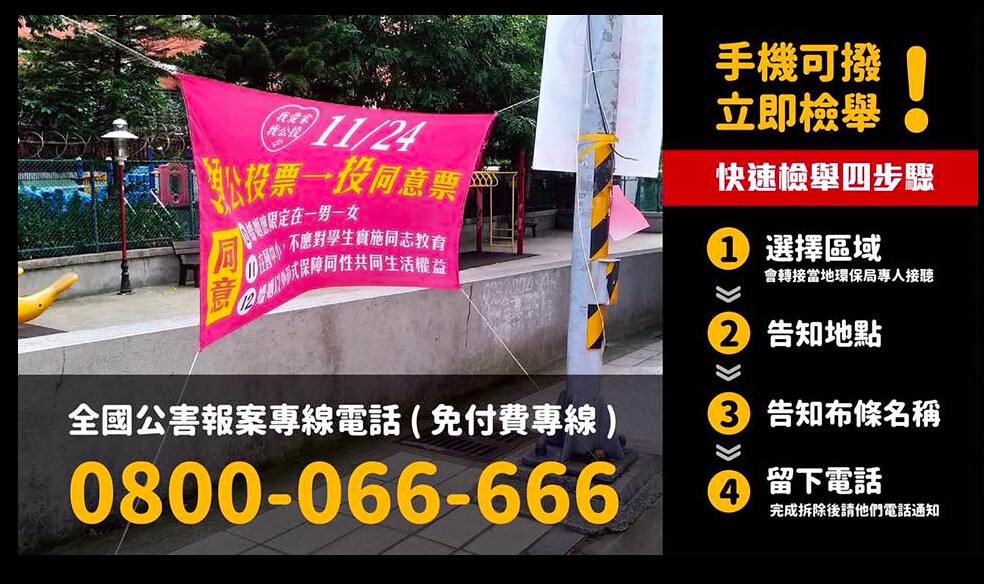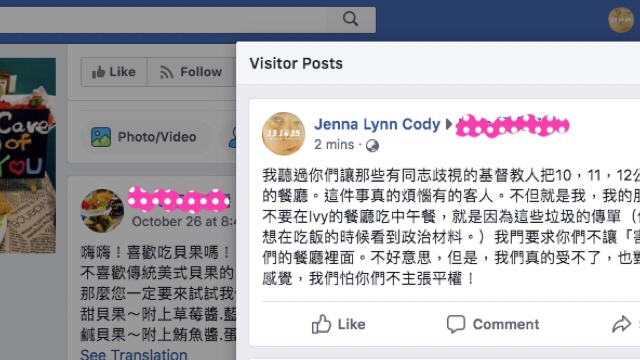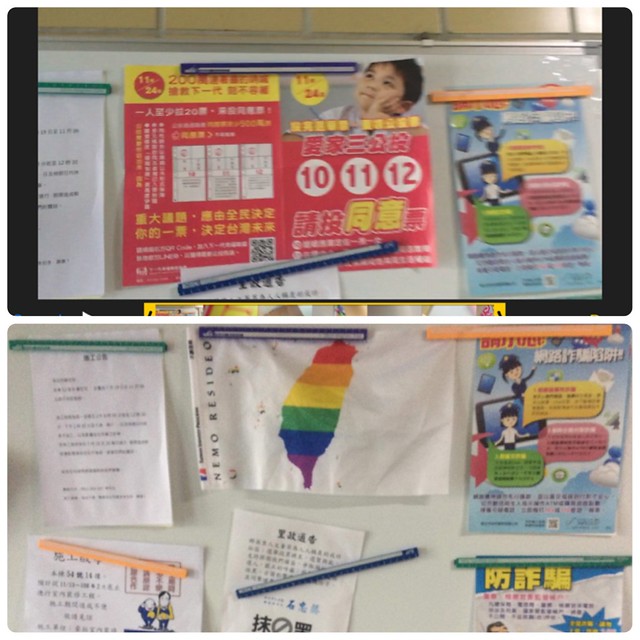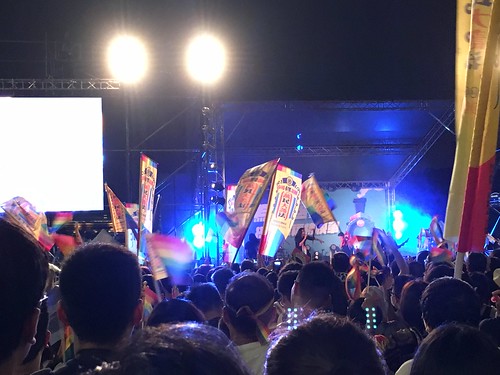
This Friday morning - that's May 17 - the Legislature will vote on the three 'same sex marriage' (not marriage equality) bills currently under consideration. People I know are saying that the Executive Yuan's bill - that is, the least bad of the three - will come up for a vote first, as it was introduced first. If it passes, the other two get thrown out. There was some attempt to 'reconcile' the three bills into one thing the Legislature could vote on, but that, uh, didn't happen, because one side keeps stating facts and making good arguments that take the needs of LGBT citizens into account, and the other side can't even get their facts straight and don't care about LGBT citizens' rights.
Although it's not great, it would be best for everyone if the Executive Yuan bill passes for a few reasons. First, it'd mean that bills which protect the rights of LGBT citizens least would not be considered, which is especially important in the case of the so-called 'compromise' bill, which would (horrifyingly) allow relatives of either member of the couple to sue to stop the marriage from being legally recognized. (Edit: this provision has been stricken from the bill.)
It would also mean that there would be a legal framework for how to implement same-sex marriage now, with a fairly clear (though legally tiring) path to actual marriage equality. If we just let the interpretation of the Civil Code take effect on May 24th, nobody really knows what will happen and very little about the actual rights of married same-sex couples will be clear. Finally, this is the bill that LGBT groups support. If we want to be good allies, we should let them lead, and support it too.
And the DPP will need all the vocal support it can get, seeing as it has handled this issue disastrously from the start.
This is the final scheduled vote before the Civil Code interpretation changes automatically, as per the ruling of the Council of Grand Justices, on May 24th. Basically...this is it.
So, there's a rally planned that starts at 8:30am outside the Legislative Yuan. Pro-equality advocates are hoping for a good turnout, even on a Friday morning. I'll be there, wandering around, taking photos, generally adding my physical presence to the crowd.
If you care about equal rights and human rights, I ask that you come too. Take time off if you have to. Tell your friends. Not just the foreigners (though it's easier for a lot of us to be free on a random morning), but your Taiwanese friends. Apply for half-day leave now.
Plus, you can be sure the anti-gay folks will be there too. We need to outnumber them just to show the legislature that equality is the only real future for Taiwan.
If the best of the three bills passes, we still won't have marriage equality, but we will have something on the road to it, and if we show up in numbers that will make an important statement going forward.
See you there.

